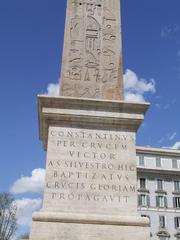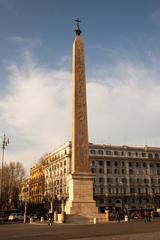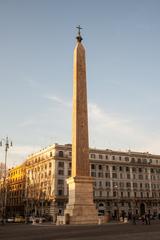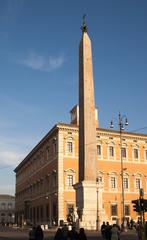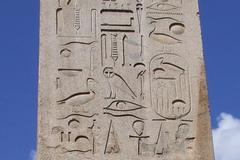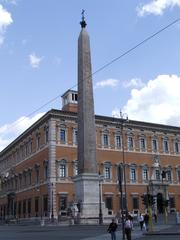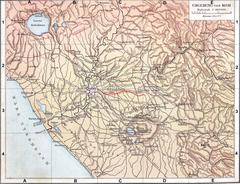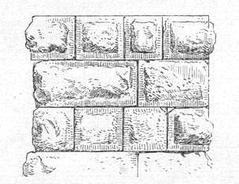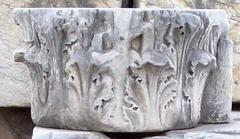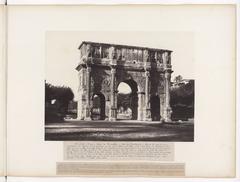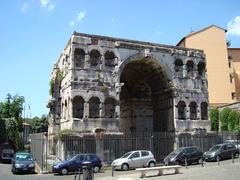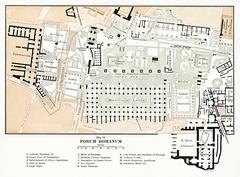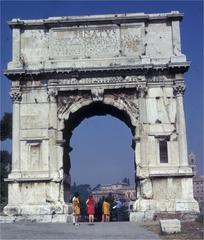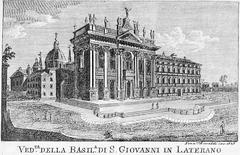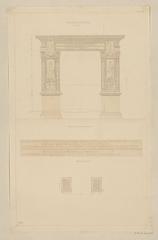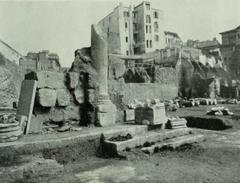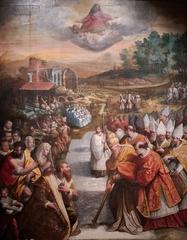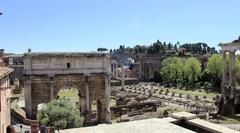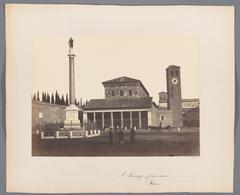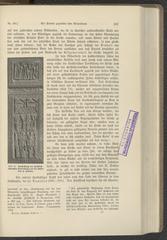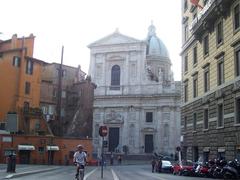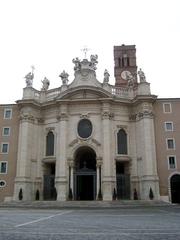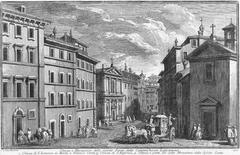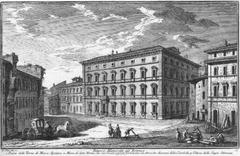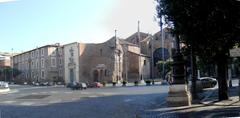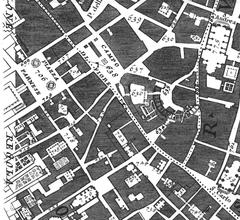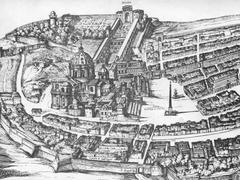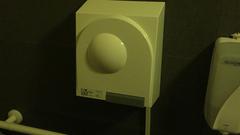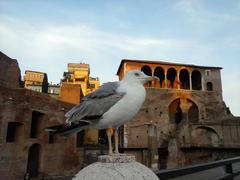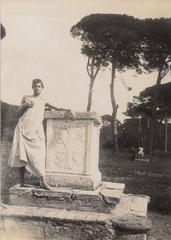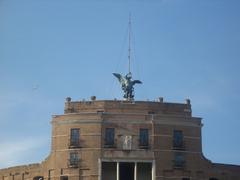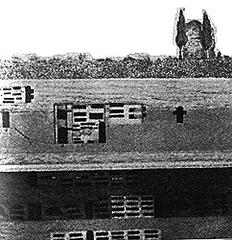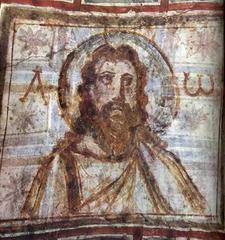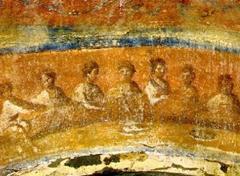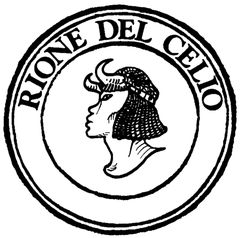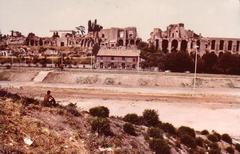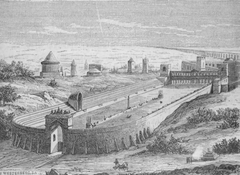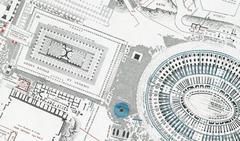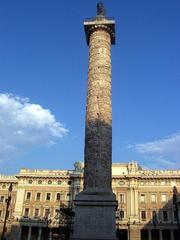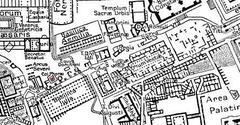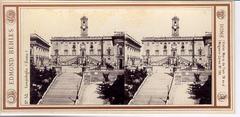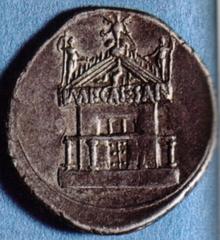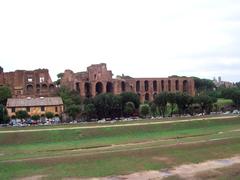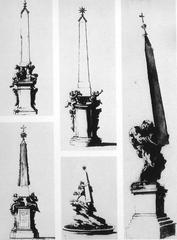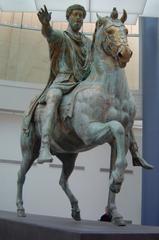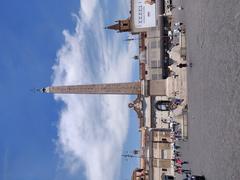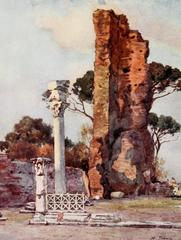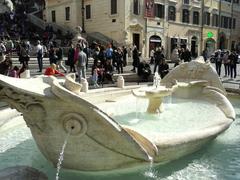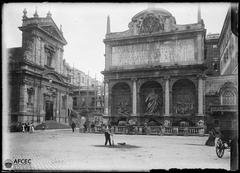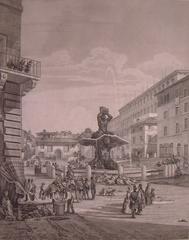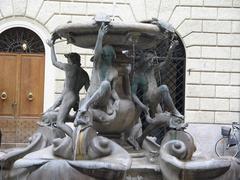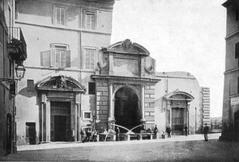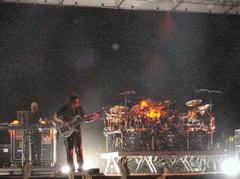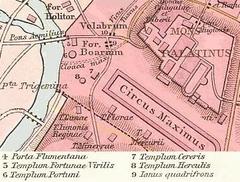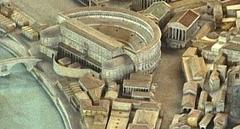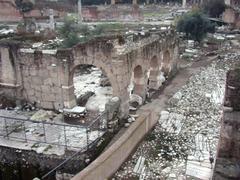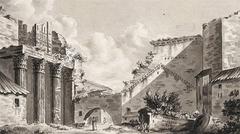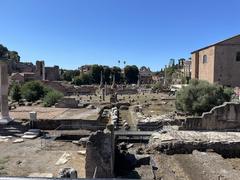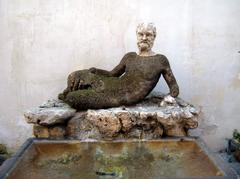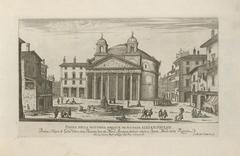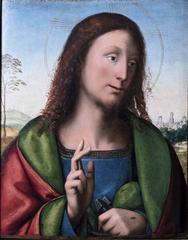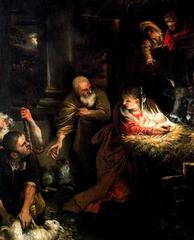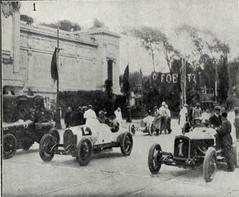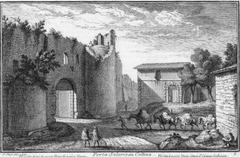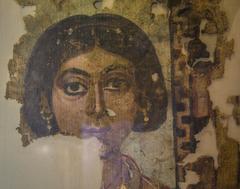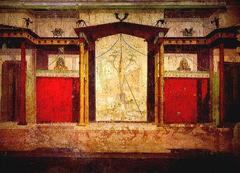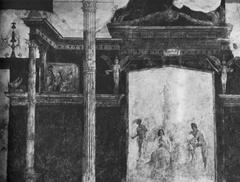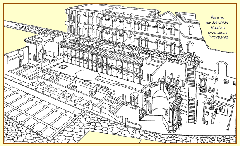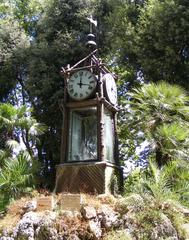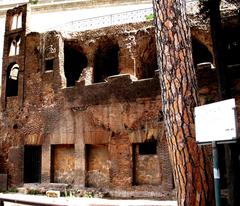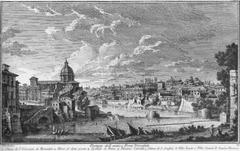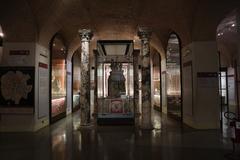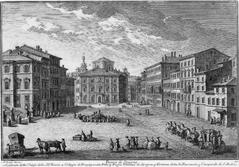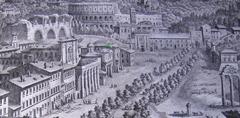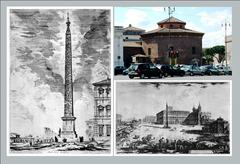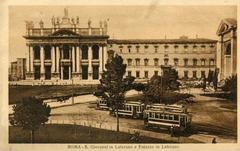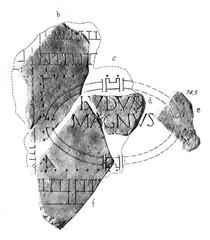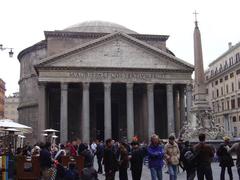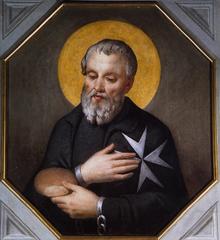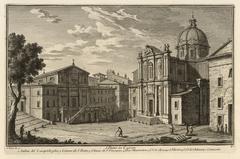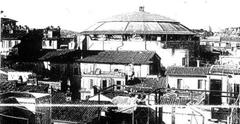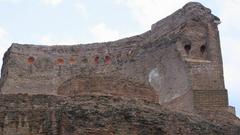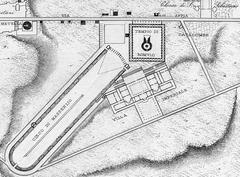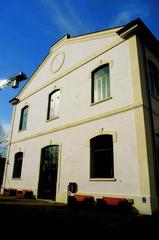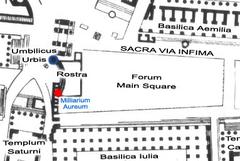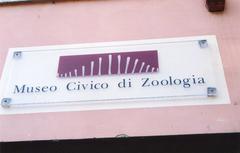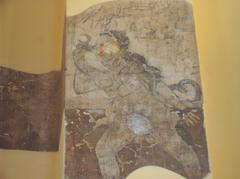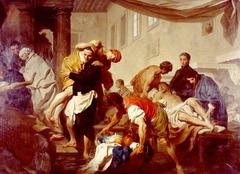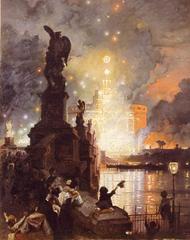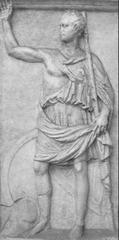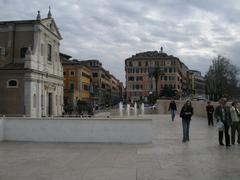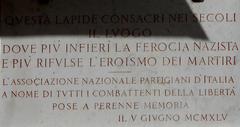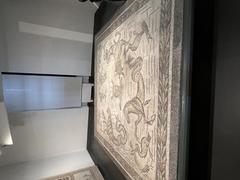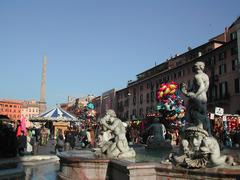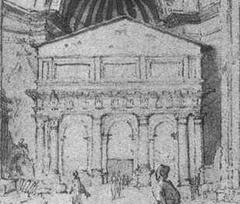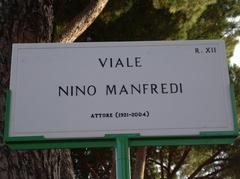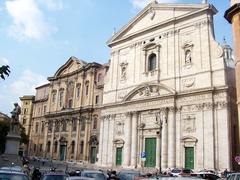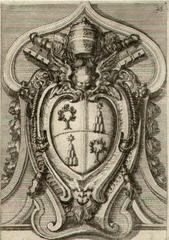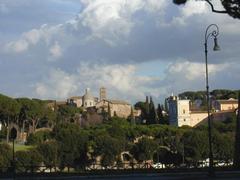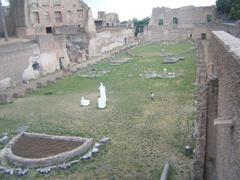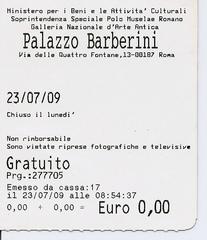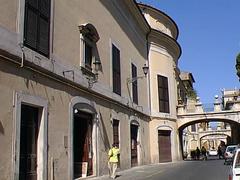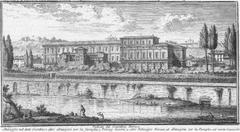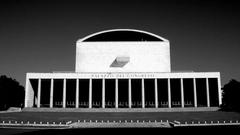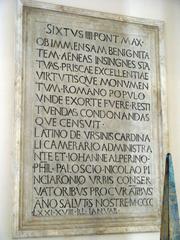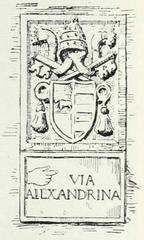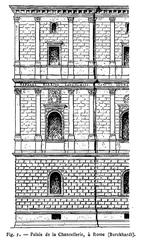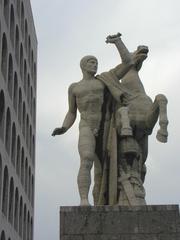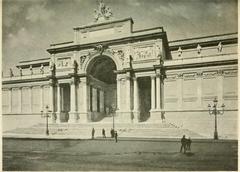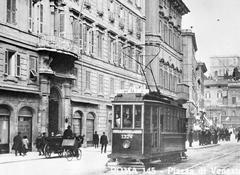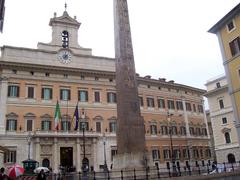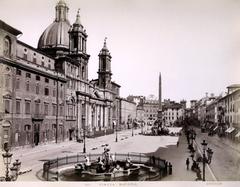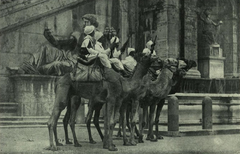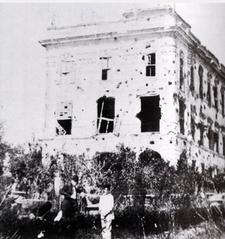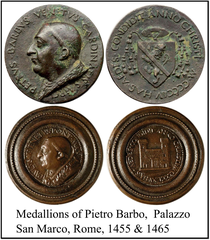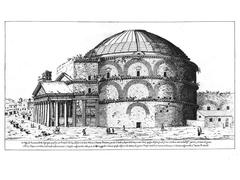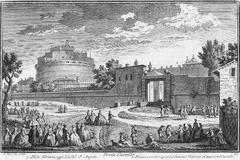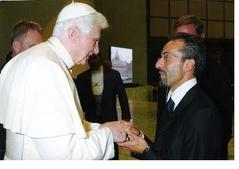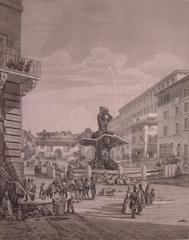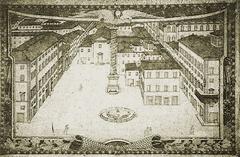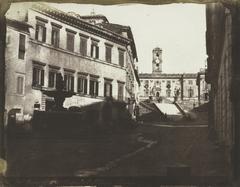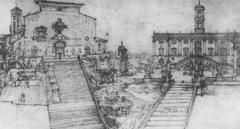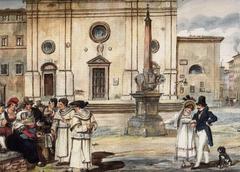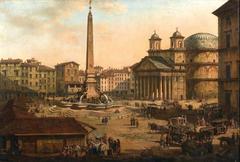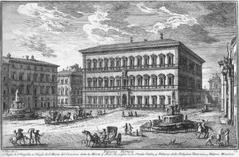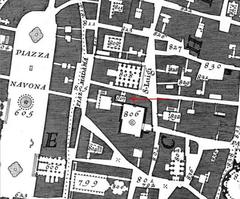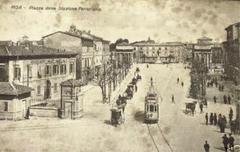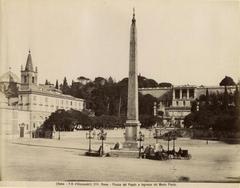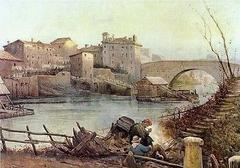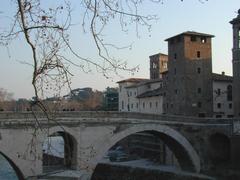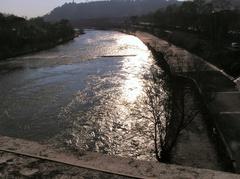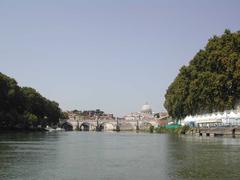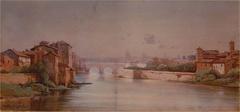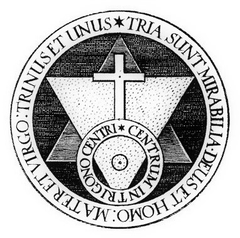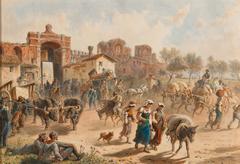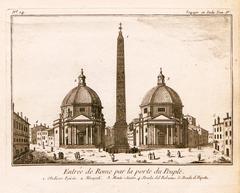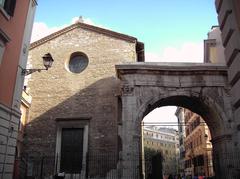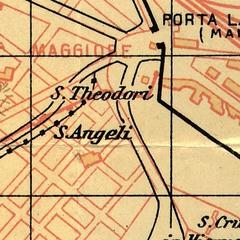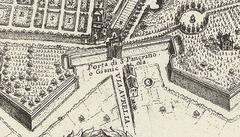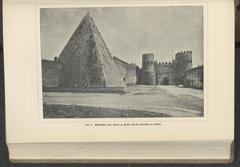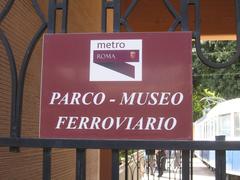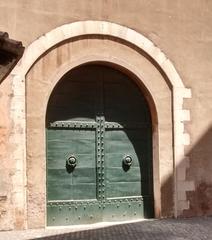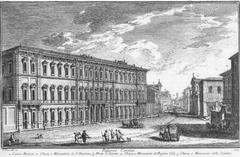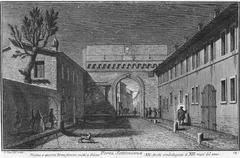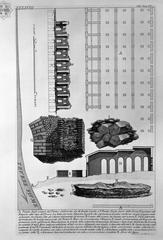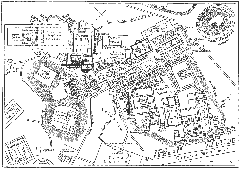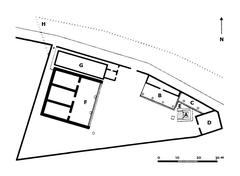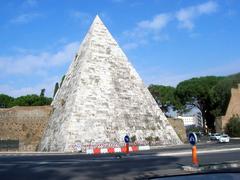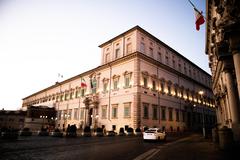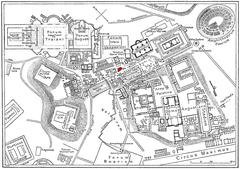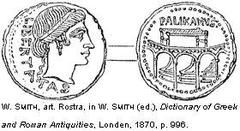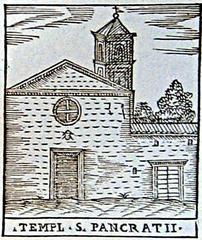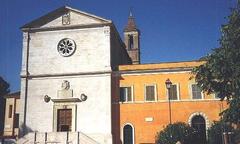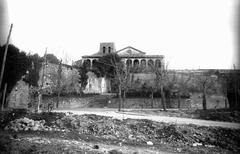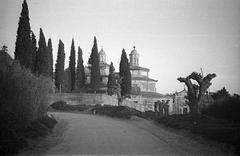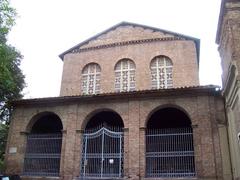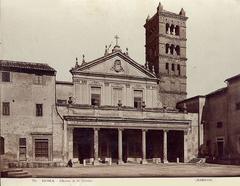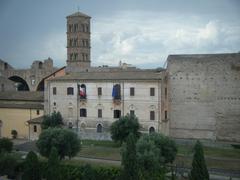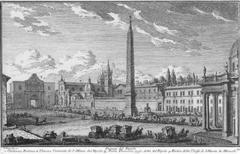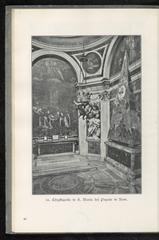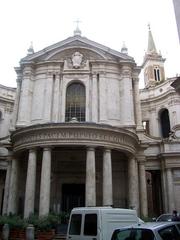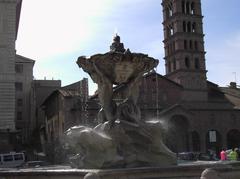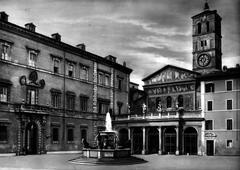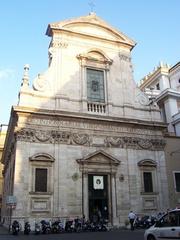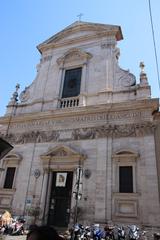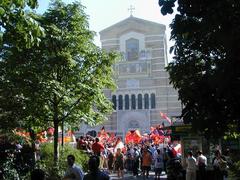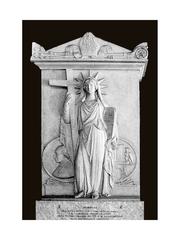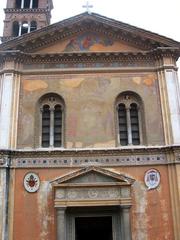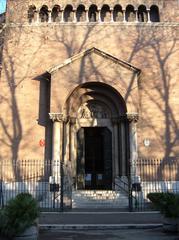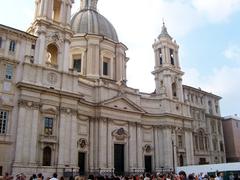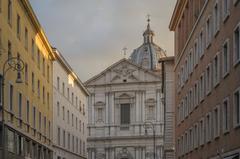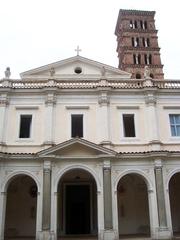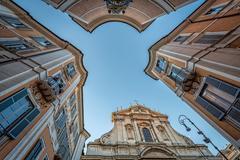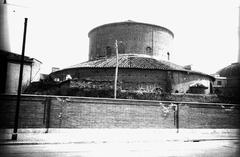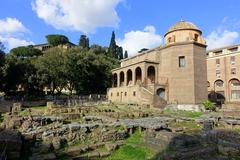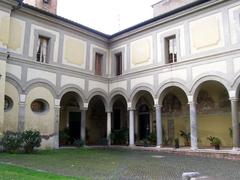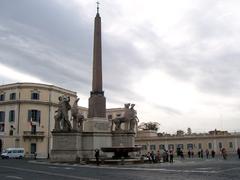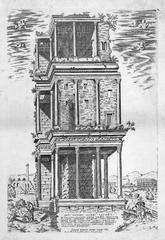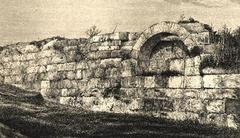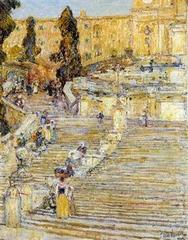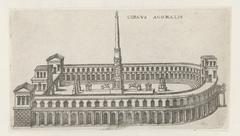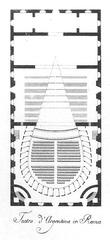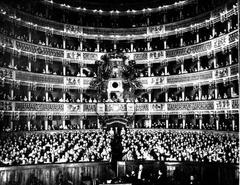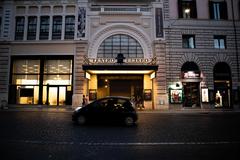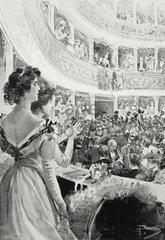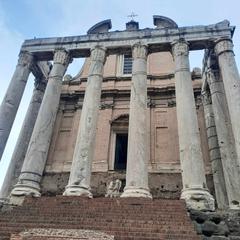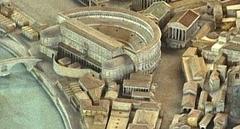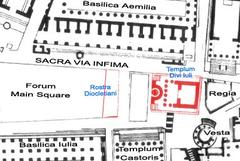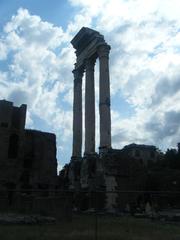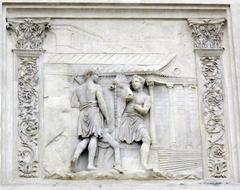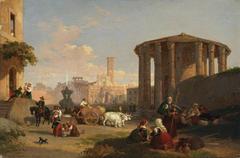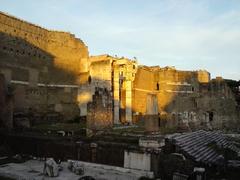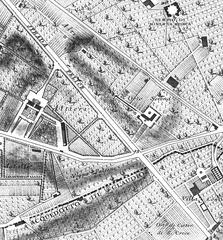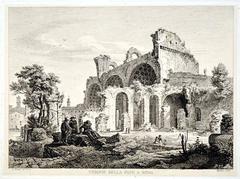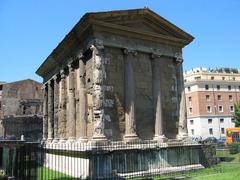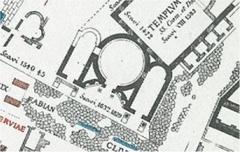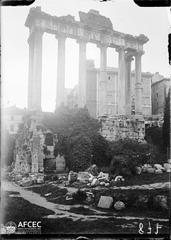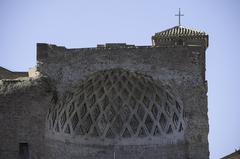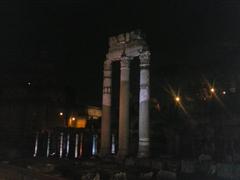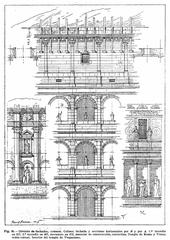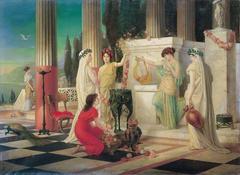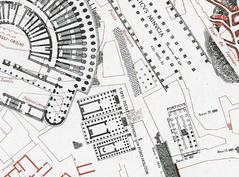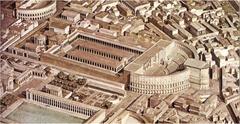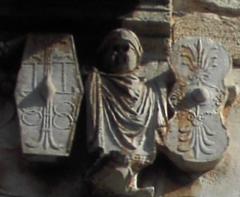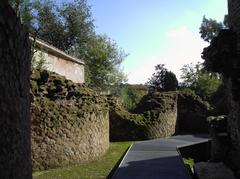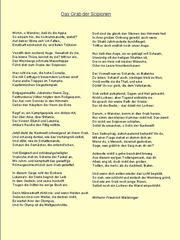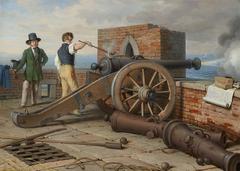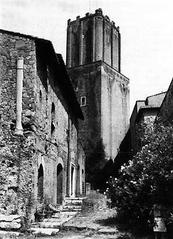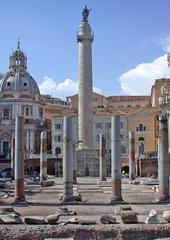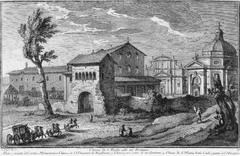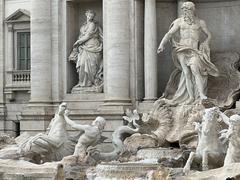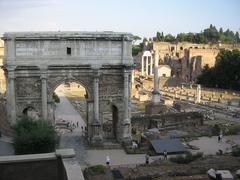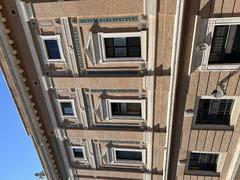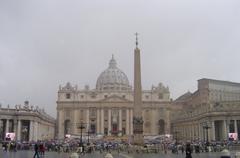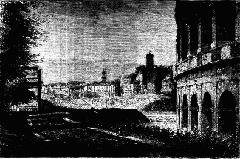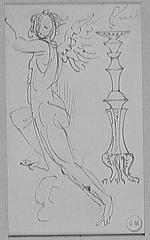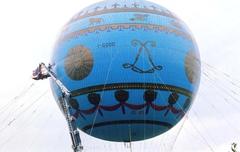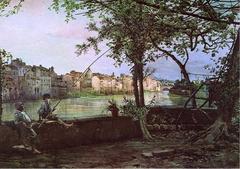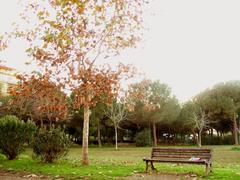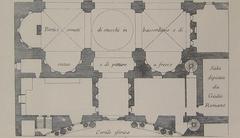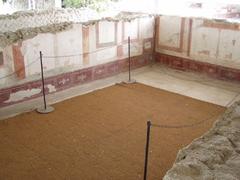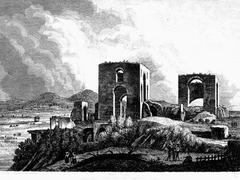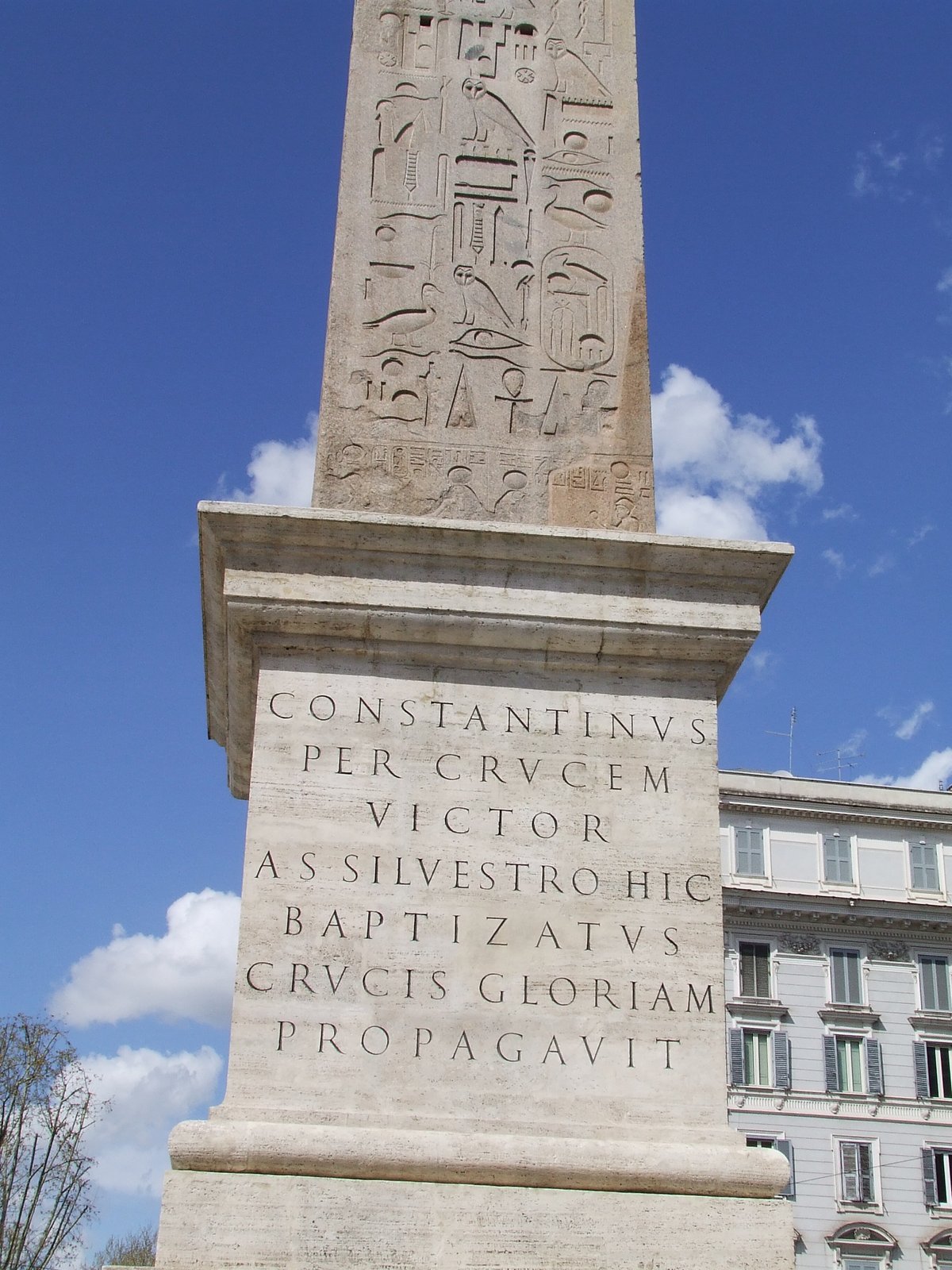
Visiting Piazza di San Giovanni in Laterano in Rome: Hours, Tickets, and Tips
Date: 31/07/2024
Introduction
Piazza di San Giovanni in Laterano is a landmark of profound historical, architectural, and religious significance in Rome, Italy. This iconic piazza is home to the Archbasilica of Saint John Lateran, the cathedral church of Rome and the official ecclesiastical seat of the Pope. Founded by Emperor Constantine the Great in the early 4th century AD, the basilica is the oldest and highest-ranking of the four major papal basilicas (HistoryHit). Over the centuries, it has undergone numerous renovations, resulting in a magnificent blend of architectural styles, with its neo-classical façade completed by Alessandro Galilei in 1735 (Rome.net). This guide provides an in-depth look at the historical context, architectural marvels, religious significance, and practical visitor information to ensure a comprehensive and enriching visit to Piazza di San Giovanni in Laterano.
Table of Contents
- Introduction
- Historical Background
- Architectural Marvels
- Religious Significance
- Visitor Information
- Nearby Attractions
- Practical Information
- FAQ
- Conclusion
Historical Background
Early Foundations
Piazza di San Giovanni in Laterano is steeped in rich historical significance. The site is home to the Archbasilica of Saint John Lateran, the cathedral church of Rome and the official ecclesiastical seat of the Pope. The archbasilica’s Latin name is Archibasilica Sanctissimi Salvatoris ac Sancti Ioannis Baptistae et Ioannis Evangelistae ad Lateranum, which translates to the Archbasilica of the Most Holy Savior and Saints John the Baptist and John the Evangelist at the Lateran (Wikipedia).
The archbasilica stands over the remains of the Castra Nova equitum singularium, the new fort of the imperial cavalry bodyguard. The site was donated by Emperor Constantine the Great to the Bishop of Rome and converted into a church in the early 4th century AD, making it the oldest papal basilica (HistoryHit).
Architectural Marvels
The architecture of San Giovanni in Laterano is a testament to the evolving styles and artistic achievements over the centuries. The façade, designed by Alessandro Galilei, is made entirely of travertine marble from Tivoli and features 15 enormous statues of Jesus, saints, and doctors of the church, each 23 feet high (The Geographical Cure). The interior of the basilica is equally impressive, with a central nave flanked by 12 niches filled with Baroque sculptures of the Apostles by illustrious 18th-century artists (HistoryHit).
The cloister, created by the Cosmati Vassalletti brothers in the early 13th century, is another highlight. It features unique twisting double columns and a lovely mosaic frieze running around the garden side of the portico. The cloister also displays monuments from the original basilica, including ancient altars, reliefs, tombs, and some of the oldest surviving papal thrones (The Geographical Cure).
Religious Significance
San Giovanni in Laterano holds a unique position in the Roman Catholic Church as the cathedral of the Diocese of Rome and the official ecclesiastical seat of the Pope. It is often referred to as the “Mother of all the Churches of Rome and of the world” (Rome.net). The basilica has been the site of numerous significant events in the history of the Church, including the coronation of popes until 1870. It also houses the tombs of six popes (The Geographical Cure).
Visitor Information
Getting There
San Giovanni in Laterano is centrally located in Rome and is easily accessible by public transport. The San Giovanni metro stop is only a four-minute walk away, and several bus lines, including 16, 81, 85, 87, 665, and nMC, stop at Porta San Giovanni outside the basilica (HistoryHit).
Opening Hours and Admission
The basilica is open daily from 7 am to 6:30 pm, and entrance is free. However, to visit the treasury, Sancta Sanctorum, cloister, and baptistery, you need to buy a combination ticket for 10 euros. Guided tours are available every Tuesday at 10:30 am for 15 euros (The Geographical Cure).
Must-See Highlights
- Facade: The main façade, designed by Alessandro Galilei, is a stunning example of neo-classical architecture, featuring 15 enormous statues of religious figures (The Geographical Cure).
- Central Nave: The central nave is flanked by 12 niches filled with Baroque sculptures of the Apostles (HistoryHit).
- Cloister: The 13th-century cloister, with its unique twisting double columns and mosaic frieze, is a must-see (The Geographical Cure).
- Scala Sancta: Across the street from the basilica, the Holy Stairs are believed to be the steps ascended by Jesus in Pontius Pilate’s palace. The highly religious climb the 28 marble steps on their knees (The Geographical Cure).
- Sancta Sanctorum: At the top of the Holy Stairs is the Sancta Sanctorum, the former private chapel of the pope, which houses gorgeously restored frescos, relics, and an icon of the redeemer (The Geographical Cure).
Nearby Attractions
Piazza di San Giovanni in Laterano is surrounded by several other significant landmarks that are worth visiting:
- Aurelian Walls: These ancient walls once encircled the city of Rome and are a testament to the city’s historical defenses (Humana Lens).
- Egyptian Obelisk: Erected by Pope Sixtus V in the 16th century, this ancient obelisk was originally commissioned by the Egyptian Pharaoh Thutmose III (HistoryHit).
- Porta San Giovanni: This gate in the Aurelian Walls is another historical landmark worth exploring (Humana Lens).
- Baptistery: Dating back to the time of Constantine, the baptistery retains its original octagonal shape and features eight Porphyry columns and 17th-century frescos (The Geographical Cure).
Practical Information
- Duration of Visit: A visit to San Giovanni in Laterano can take anywhere from one to several hours, depending on how detailed you want your tour to be. It is recommended to spend at least one hour exploring the basilica and an additional hour if you plan to visit the cloister and surrounding landmarks (Humana Lens).
- Guided Tours: Guided tours are available and highly recommended to fully appreciate the historical and artistic significance of the basilica. Audioguides in English are also available (Humana Lens).
- Accessibility: The basilica is accessible to visitors with disabilities, and there are facilities available to ensure a comfortable visit.
FAQ
- What are the visiting hours for San Giovanni in Laterano? The basilica is open daily from 7 am to 6:30 pm.
- How much are the tickets for San Giovanni in Laterano? Entrance is free, but a combination ticket costing 10 euros is required for the treasury, Sancta Sanctorum, cloister, and baptistery.
- Is San Giovanni in Laterano accessible by public transport? Yes, the San Giovanni metro stop is a four-minute walk away, and several bus lines stop at Porta San Giovanni outside the basilica.
Conclusion
In summary, Piazza di San Giovanni in Laterano is a site of profound historical, architectural, and religious significance. It offers visitors a unique glimpse into the rich history of Christianity and the city of Rome, making it a must-visit destination for anyone traveling to the Eternal City. For more tips and guides, don’t forget to check out other related posts on our site or follow us on social media for updates.
References
- HistoryHit, 2023, Author Unknown https://www.historyhit.com/locations/san-giovanni-in-laterano/
- Rome.net, 2023, Author Unknown https://www.rome.net/basilica-st-john-lateran
- Wikipedia, 2023, Author Unknown https://en.wikipedia.org/wiki/Archbasilica_of_Saint_John_Lateran
- The Geographical Cure, 2023, Author Unknown https://www.thegeographicalcure.com/post/guide-to-st-john-lateran
- Humana Lens, 2023, Author Unknown https://www.humanalens.com/post/san-giovanni-in-laterano-rome-history-and-complete-guide
- My Adventures Across the World, 2023, Author Unknown https://myadventuresacrosstheworld.com/st-john-in-the-lateran-basilica-rome-guide/
- Rome Wanderlust, 2023, Author Unknown https://www.romewanderlust.com/posts/exploring-san-giovanni-in-laterano
- Walks of Italy, 2023, Author Unknown https://www.walksofitaly.com/blog/travel-tips/san-giovanni-in-laterano
- French and Travelers, 2023, Author Unknown https://frenchandtravelers.com/basilica-of-saint-john-lateran/
